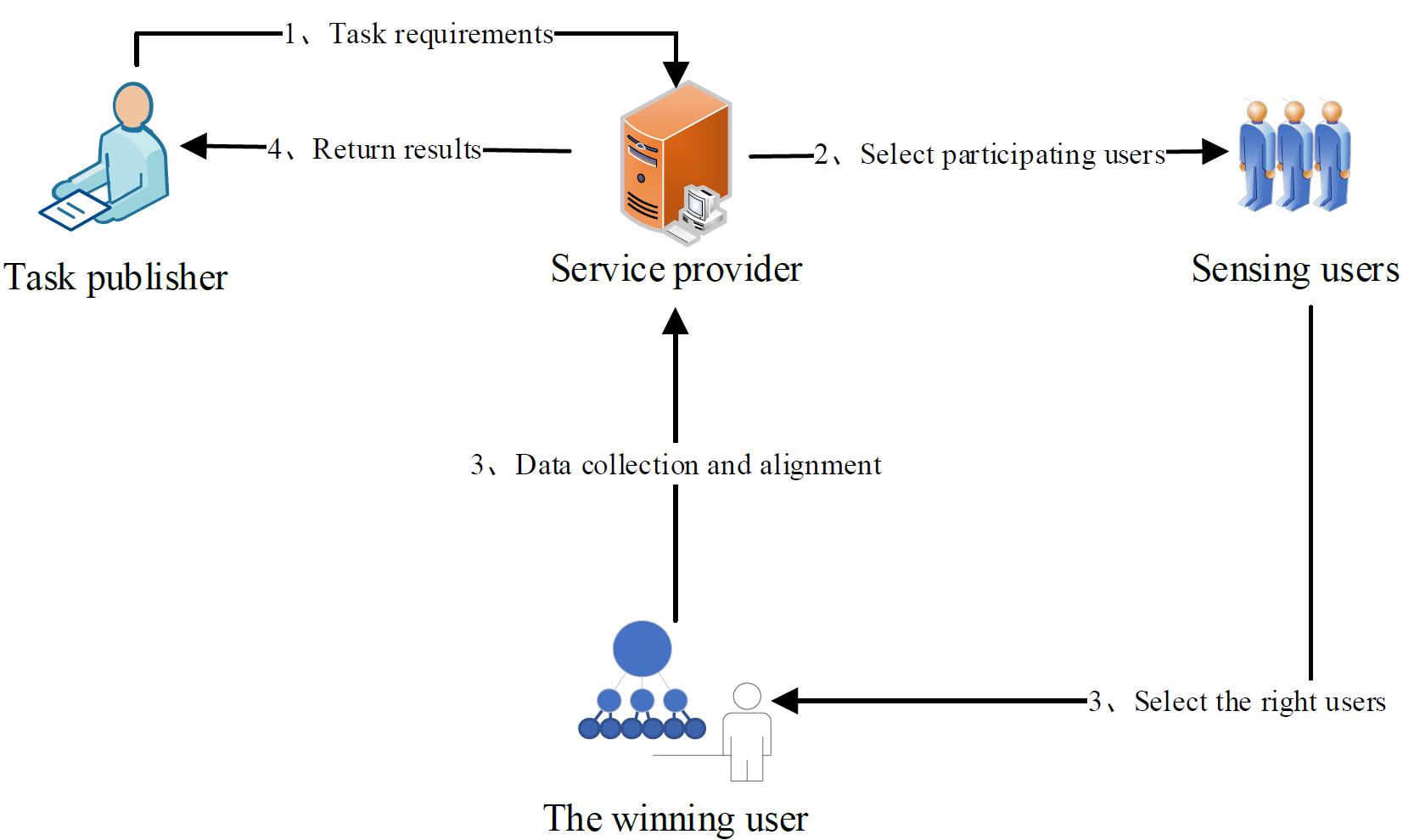Survey on Privacy Preserving in Crowd Sensing
Abstract
As an emerging sensing technology, crowd sensing has gained wide attention in many application fields and is developing rapidly. However, with the popularization of crowd participation in sensing tasks, the risk of user privacy leakage is also increasing, which becomes an important problem to be solved urgently. When users participate in sensing tasks, they need to upload personal information or sensor data, which often contains sensitive information. Without effective privacy protection measures, user privacy may be leaked or abused. The core goal of privacy protection is to ensure that users' private information will not be leaked when they participate in the task. This paper analyzes the related research progress of privacy protection in the field of crowd sensing, and summarizes the main challenges currently faced.
References
[2] Zou, S., Xi, J., Xu, G., et al. (2021). Crowdhb: A decentralized location privacy-preserving crowdsensing system based on a hybrid blockchain network. IEEE Internet of Things Journal, 9(16), 14803–14817. https://doi.org/10.1109/JIOT.2021.3088193
[3] Wu, D., Fan, L., Zhang, C., et al. (2018). Dynamical credibility assessment of privacy-preserving strategy for opportunistic mobile crowd sensing. IEEE Access, 6, 37430–37443. https://doi.org/10.1109/ACCESS.2018.2850534
[4] Ding, X., Lv, R., Pang, X., et al. (2022). Privacy-preserving task allocation for edge computing-based mobile crowdsensing. Computers & Electrical Engineering, 97, 107528. https://doi.org/10.1016/j.compeleceng.2021.107528
[5] Yan, X., Wang, Y., Zeng, B., et al. (2022). P2SIM: Privacy-preserving and source-reliable incentive mechanism for mobile crowdsensing. IEEE Internet of Things Journal, 9(24), 25424–25437. https://doi.org/10.1109/JIOT.2022.3198311
[6] Chatzopoulos, D., Gujar, S., & Faltings, B. (2018). Privacy preserving and cost optimal mobile crowdsensing using smart contracts on blockchain. IEEE Internet of Things Journal, 10(9), 442–450. https://doi.org/10.1109/JIOT.2018.2825383
[7] Wang, W., Yang, Y., & Yin, Z. (2022). BSIF: Blockchain-based secure, interactive, and fair mobile crowdsensing. IEEE Journal on Selected Areas in Communications, 40(12), 3452–3469. https://doi.org/10.1109/JSAC.2022.3192064
[8] Yang, M., Zhu, T., & Liang, K. (2018). A blockchain-based location privacy-preserving crowdsensing system. Future Generation Computer Systems, 94, 408–418. https://doi.org/10.1016/j.future.2018.11.001
[9] Wang, J., Wang, Y., Zhang, D., et al. (2018). Multi-task allocation in mobile crowd sensing with individual task quality assurance. IEEE Transactions on Mobile Computing, 17(9), 2101–2113. https://doi.org/10.1109/TMC.2018.2797061
[10] Wu, S., Wang, Y., & Tong, X. (2021). Multi-objective task assignment for maximizing social welfare in spatio-temporal crowdsourcing. China Communications, 18(11), 11–25. https://doi.org/10.23919/JCC.2021.11.002
[11] Li, X., & Zhang, X. (2019). Multi-task allocation under time constraints in mobile crowdsensing. IEEE Transactions on Mobile Computing, 20(4), 1494–1510. https://doi.org/10.1109/TMC.2019.2901436
[12] Tao, X., & Song, W. (2020). Profit-oriented task allocation for mobile crowdsensing with worker dynamics: Cooperative offline solution and predictive online solution. IEEE Transactions on Mobile Computing, 20(8), 2637–2653. https://doi.org/10.1109/TMC.2020.2980951
[13] Song, T., Xu, K., Li, J., et al. (2020). Multi-skill aware task assignment in real-time spatial crowdsourcing. GeoInformatica, 24, 153–173. https://doi.org/10.1007/s10707-019-00359-w
[14] Xiao, M., Wu, J., Huang, L., et al. (2016). Online task assignment for crowdsensing in predictable mobile social networks. IEEE Transactions on Mobile Computing, 16(8), 2306–2320. https://doi.org/10.1109/TMC.2016.2619666
[15] Miao, X., Kang, Y., Ma, Q., et al. (2020). Quality-aware online task assignment in mobile crowdsourcing. ACM Transactions on Sensor Networks, 16(3), 1–21. https://doi.org/10.1145/3398044
[16] To, H., Shahabi, C., & Kazemi, L. (2015). A server-assigned spatial crowdsourcing framework. ACM Transactions on Spatial Algorithms and Systems, 1(1), 1–28. https://doi.org/10.1145/2729711
[17] Wang, M., Wang, Y., Sai, A., et al. (2022, November 4). Task assignment for hybrid scenarios in spatial crowdsourcing: A Q-learning-based approach. [EB/OL]. Retrieved December 12, 2023.


This work is licensed under a Creative Commons Attribution 4.0 International License.
Copyright for this article is retained by the author(s), with first publication rights granted to the journal.
This is an open-access article distributed under the terms and conditions of the Creative Commons Attribution license (http://creativecommons.org/licenses/by/4.0/).








1.png)














